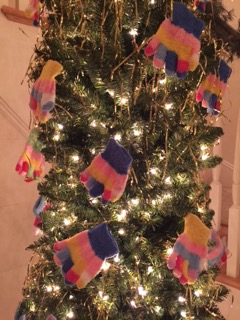
A mother I know has a 12-yo daughter who goes to school away from home. This girl, whom I will call “Mona”, can sometimes seem unresponsive to her parents. For example, when her parents come to pick her up at school, she may at first appear to ignore them instead of running to greet them with the enthusiasm the other girls show their parents. Mona also struggles in school and requires academic support. Her development has been atypical; neuropsychological testing suggests that using language to make sense of her world is a particular challenge. Even making sense of her bodily sensations may escape her so that she neglects to put on her coat when it is cold outside. It also seems that picking up cues about others’ feelings and from her own emotional state is difficult for her. This does not mean that Mona is without feelings or insensitive. She in fact feels things deeply and can be very sensitive to others. It is just that it sometimes takes her more time or more energy to achieve a state of responsiveness. She needs to “put it together” instead of it smoothly coming into place the way it does for people with typical development. Because her internal world is often confused or poorly integrated, she can be hard to “read”. She is not an easy child to parent.
One time, on the way to pick Mona up at school, her mother was reflecting on some of the frustration and disappointment she and Mona’s father felt in their relationship with her. She decided that she would have to search for a better way of expressing her love for her daughter, one that Mona could “hear” better than conventional ways. She was particularly conscious of Mona’s embarrassment at expressing feelings for her parents in front of the other girls. When they met, she said, “You know, Mona. I was thinking on the way here that I always say, “I love you, I love you,” but that doesn’t really capture the depth of the feeling I have for you. We have to think up our own words for it.” The next day, a thought occurred to her. She spoke to Mona again. She said, “I thought of it, Mona. ‘I glove you’. Mona’s mother was thinking of surrounding her daughter with her love, the way a glove surrounds her hand. It may also be that she was thinking of her wish to protect her daughter from the cold in a way that Mona herself sometimes seemed unable to do. Finally and perhaps most important, in her suggestion that they “think up our own words for it”, her mother was showing Mona that together they could be creative in the ways they communicate their feelings to each other. They did not have to restrict themselves to conventional language. The next day when they said goodbye to each other, her mother held up her hand. Mona smiled and raised her hand.
Mona’s birthday is close to Christmas. This year her mother wanted to make something special for her. Instead of typical Christmas decorations on their tree, her mother decorated it with different colored gloves. While the tree is very attractive, it also has special meaning for Mona and her mother. It is a way to say, “I love you” without words. It captures new possibilities for mutual understanding and for ways of growing their relationship. Maybe it is a way of saying “Happy New Year” for next year and for the future. As I always say, parenting is a creative enterprise.
